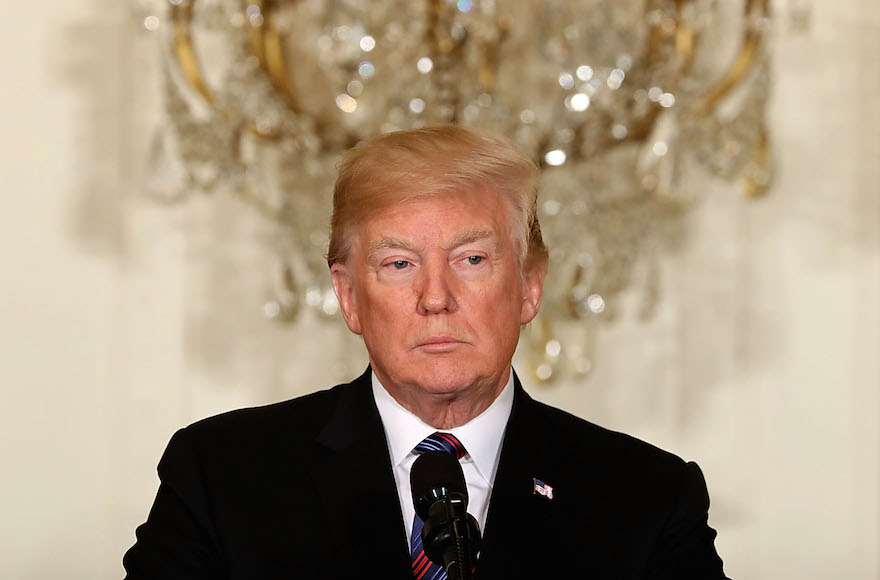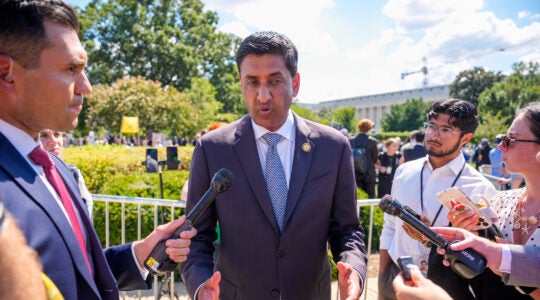WASHINGTON (JTA) — A State Department spokeswoman said combating anti-Semitism remains a “priority” for the Trump administration, but would not say if the Trump administration would fill the congressionally mandated job of an anti-Semitism monitor.
“The position of Special Envoy to Monitor and Combat Anti-Semitism is currently unfilled, but the Office of International Religious Freedom at the Department of State continues actively to support the mission of that office,” the spokeswoman said in response to a JTA query about why the position remains empty.
“Combating anti-Semitism internationally is a priority for this administration,” the spokeswoman said. “President Trump and Vice President Pence have publicly expressed their deep concern about high levels of anti-Semitism globally.”
The position of anti-Semitism monitor, mandated by a law passed in 2004, has not been filled by Trump more than a year after it was vacated. In addition, the State Department’s office to monitor and combat anti-Semitism has been unstaffed since July 1.
On Monday, the Anti-Defamation League wrote to Trump urging him to “make this critical appointment without delay.”
Lawmakers from both parties in Congress have pressed the administration to make the appointment, noting that unlike many of the other special envoy positions, made at the discretion of the secretary of state, the anti-Semitism appointment is a matter of law. Former Secretary of State Rex Tillerson launched an effort to roll back many of the special envoy positions, citing cost cuts and his belief that their roles duplicated work already undertaken by the department.
Advocates for special envoys say they project American concern abroad that the issue is a priority. Under President Barack Obama, for instance, the anti-Semitism monitor, Ira Forman, spoke out forcefully against planned circumcision bans in northern Europe; most of the countries contemplating the bans ended up deciding against them.
JTA has documented Jewish history in real-time for over a century. Keep our journalism strong by joining us in supporting independent, award-winning reporting.






